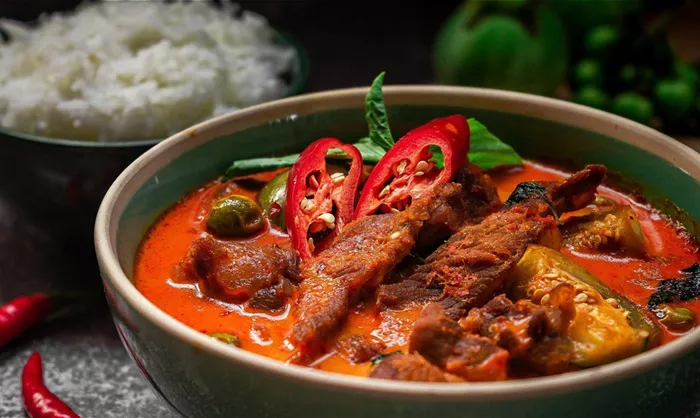Adding a little heat to your meals might help you eat less, according to a new study from The Pennsylvania State University. Researchers found that including chili pepper in lunch slowed down eating and reduced the amount of food consumed—without making the meal less enjoyable.
The study, led by postdoctoral researcher Paige Cunningham and Professor John Hayes at Penn State’s Sensory Evaluation Center, was published in Science Direct. The team discovered that spicier meals led people to take smaller bites and eat at a slower pace, which resulted in lower calorie intake.
“We know from earlier research that eating slowly helps people consume less food,” said Cunningham. “We wanted to see if adding spice could have the same effect—and it does.”
How the Study Was Done
The research involved 130 adults across three experiments. Participants visited the lab twice to eat lunch. Depending on the session, they received either beef chili or chicken tikka masala. Both dishes were served in mild and spicy versions.
The spiciness was adjusted using sweet and hot paprika to create a noticeable but not overwhelming burn. The team kept the flavor consistent while changing only the spice level.
Each eating session was recorded. The researchers tracked how long it took participants to finish, how many bites they took, bite size, and how fast they ate. They also measured how much food was eaten, how much water was consumed, and how full or hungry people felt before and after the meal.
What They Found
In one experiment, participants who ate spicy beef chili consumed 11% less food—about 50 fewer calories—compared to those who ate the mild version. They also ate more slowly and took smaller bites.
In another experiment with chicken tikka masala, people ate 18% less food and slowed their eating rate by 17% when the dish was spicier. In both cases, participants said they liked the food just as much as the milder versions.
However, when the spice level wasn’t high enough to make a noticeable difference in taste, there was no change in how much people ate. This suggests that a clear boost in spiciness is needed to see an effect.
Why Spice Slows You Down
Cunningham explained that spicier food stays in your mouth longer, which may give your body more time to signal that it is full. “It’s not just the flavor or the burn,” she said. “It’s how spice changes the way we eat that’s important.”
The study also found that participants didn’t drink much more water during spicy meals, showing that thirst wasn’t the reason they stopped eating sooner. Hunger levels before and after the meal stayed about the same.
What This Means for Everyday Eating
Hayes said the findings suggest that adding chilies to meals could be an easy way to manage portion sizes without feeling deprived. “We test these things in the lab because guessing isn’t enough—you need real data to know what works,” he said.
Capsaicinoids—the natural compounds that give chili peppers their heat—have been linked to other health benefits, like helping with weight control and heart health. This study focused on how they affect eating behavior during a meal, showing that spice can slow down eating and reduce intake without changing food enjoyment.
The results suggest that spice could be a helpful tool for eating more mindfully. While it’s not a magic solution for weight loss, adding a bit of heat might help you feel satisfied with smaller portions.
Related topics:


